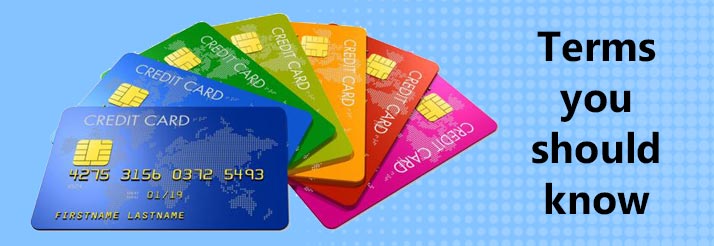Credit cards are a boon for those who don’t like carrying cash and love to spend their money on shopping or enjoying different services. A credit card is a type of plastic money where the bank lends the money to the card holder to purchase goods or services. The card holder has to pay back the funds every month in due time. Getting a credit card and using it responsibly is easy but there are some terms you should know before using a credit card next time.
APR:
When you use a credit card, you are borrowing money from bank to pay for services/products you purchase/use. Banks lends you the funds and charges specific interest rate upon them. Banks describe the interest rate for credit card as yearly rates. This yearly interest rate is charged by bank on any unpaid balances of credit card usage. This interest rate is called as Annual Percentage Rate or APR. If you pay your balance each month within the due date, you can avoid paying the APR.
Cash advance:
Credit card is a special card by using which you can purchase goods and services even though you don’t have enough balance in your bank account while making the purchase. There are many differences between a credit card and debit card. But there is one similarity: you can withdraw money by using your credit card too. This feature of the credit card is known as cash advance. Credit cards have different cash limits when it comes to ATM withdrawal. And the charges applied by the bank for the same are also high.
Credit limit:
There are different types of credit cards offered by banks as per the needs of their customers and their credit score. Every credit card has its own find limit. The maximum amount that you can spend on your credit card is known as credit limit.
Grace period:
When you get your credit card bill, you are given a time frame by bank in which you have to pay off the dues. Or else bank starts incurring charges for late payment. Usually this time frame is of 21 days. The dues date is the same for every month and is not changed by the bank or the card holder. The time between the statement closing date and the payment due date when you can pay your statement balance in full is known as grace period.


